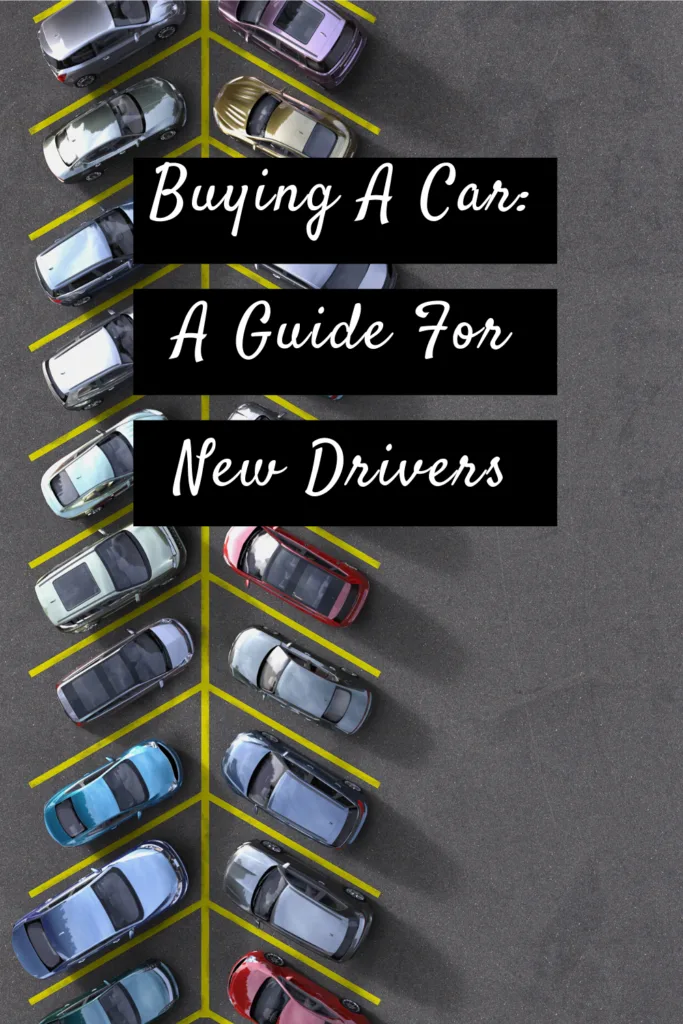
Passing your driving test can be a great sensation. You may have been looking forward to this day for some time, and now it has finally arrived. Whether you have been learning to drive for ages, or have passed your driving test after a relatively short time behind the wheel, you will be itching to get out there on the road in your first car.
You may already have the type of car that you are interested in getting in your mind already. Getting the wheels of your dreams might be something that you really can’t wait for. But you do need to slow down and make sure that you take your time to ensure you get the right vehicle.
Here are some tips for buying your first car when you have just passed your test.
Work Out Your Budget
First things first, you will need to know how much money you can afford to spend on a car. Don’t forget that you are going to need to pay to run the vehicle once you have bought it.
If you have money saved up to buy the car outright, don’t forget to consider additional running costs such as car insurance. You will also need to put fuel in your car often, and then there are other maintenance costs associated with owning the vehicle. Keeping some of your savings back to spend on these major running costs may be quite wise.
If you are planning on buying your car in installments, again you should think about how much you can afford as your maximum monthly payment. But don’t forget that you will need to pay for your fuel and insurance on top of that.
Buying New Vs Buying Used
There are advantages and disadvantages of buying both new and used cars. New cars should be free of any mechanical problems and they will come with a warranty that covers them for many major issues.
The downsides to buying a new car are that not only are they considerably more expensive, they really don’t hold their value. Within the first year, it will lose a big percentage of the price you pay.
Used cars can be quite cheap and a well-maintained model with a low-mileage might serve you well for a very long time to come. You won’t have a warranty on the vehicle though, so if your car breaks down after a week and you have to take it to the garage for some expensive work to be carried out, it will be you that has to pay the bill.
Car Dealers Vs Private Sellers
If you do opt to buy your car used, you will have a choice of buying for a used car dealer, or from a private seller. Used car dealers will generally put some effort into the presentation of the vehicle by having it detailed and serviced before putting it out on the lot. A private seller may do this, but then again, they may not.
But how a car looks is not the test of its quality. Whether you buy from a dealer or a private seller, you will need to fully road test the car, as well as giving it a thorough look over.
Private sellers tend to sell their vehicles for a lower price than a dealer as car dealers will be trying to make a mark-up. Many people will choose to buy from an established dealer because they know the name, whereas buying from a stranger there is more trust involved.
Regardless of where you buy from, you should always ask to see the vehicle’s history. The more you know about the car, the better.
Checking The Cost Of Insurance
Car insurance is vital. It can also be very expensive. The price that you pay for your insurance will depend on several different things. The make and model of the vehicle, the year that it was made, where you live, how you will store the car at night, whether there are any modifications to the vehicle, your age, and whether you have any history of driving offenses or have been the driver in an automobile accident.
Checking the cost of insurance on the car that you are buying is very important. You should check this out before you commit to actually buying it because it is surprising how expensive some models can be. You need to be sure that you can afford the basic running costs of the car.
There are ways that you can lower your insurance though. Firstly, you should shop around for quotes as they will differ between providers. You may be able to reduce your premiums by allowing your insurance company to see your driving habits through the use of telematics technology in your car.
Road Testing Your Vehicle
Before you agree to buy a vehicle, you should check it out first. If you can get the help of a mechanic, this might be helpful as they will have a strong intuition about what might go wrong with a vehicle in the near future based on the sounds that it makes.
Look the car over, check for signs of rust. If rust has been painted over, this is still a problem. Ensure you look right underneath the car and check for anything that looks loose or corroded.
Take the car out for a test drive. Be wary of any seller that refuses to let you do this as the car may have faults they don’t want you to know about.
Try and drive the car on a mixture of fast and slower roads. Be sure and take corners in the vehicle, and if possible, do some maneuvers that will let you try the steering at full lock. This will rule out any potential problems with the steering wheels and axles.
Listen out for grating or knocking sounds coming from any part of the car while you drive. These may be symptomatic of something serious.
